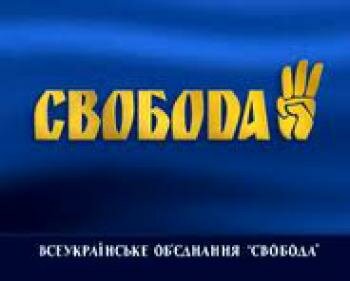
Commenting on the request of the correspondent of the online newspaper News of Ukraine - From-UA the message that allegedly the U.S. Ambassador to Ukraine had called on the carpet the leader of “Svoboda” (Freedom) for harsh comments about xenophobia, anti-Semitism and radical ideology, the President of the Analytical Center for Geopolitical Studies “Borysfen–Intel” Viktor Hvozd considered necessary to say the following:
- Ambassador, according to diplomatic practice, performs his usual work, and one of his functional responsibilities is to meet, both with the authorities and with representatives of the opposition, as well as with non-governmental organizations, etc. Usually, so do all the ambassadors, our Ukrainian ambassadors, working abroad, included.
Firstly. I am sure that during this meeting, no one was trying to teach anybody. Most likely, the parties sought to convey their positions on various, of mutual interest, issues.
Secondly. As for xenophobia and anti-Semitism, then we all know that they are very sensitive to the United States, not least because the U.S. is the most significant, and therefore the most important strategic partner of Israel. This is no secret. The entire civilized world knows that if not for the support of the United States, it is unlikely that Israel would exist today.
Thirdly, unfortunately, “Svoboda”, as we can see, has some shortcomings caused by subjective factors. Well, how can these defects be explained? First of all, by the short-sightedness of some Party members, lack of balance in their actions when it is necessary to respond rapidly to emerging diverse problems. This is life in all its facets... Such citizens' life is sometimes not easy. Especially when they get into the Ukrainian Parliament. On the wave of euphoria sometimes they do not realize the importance of their each and every deed and word.
I believe that it is difficult to abandon the rhetoric of the past. And it was immediately used their experienced opponents both, inside the country and abroad. However, even the proverb warns, before saying something, think of the consequences.
Now about the “throwing in” of this information onto the political field. Today, when the campaign for the presidential election begins, and — especially when there is very little time before the Vilnius summit and the signing of an association agreement with the EU, I believe, here they are after two goals. The first goal is to discredit the U.S. Ambassador that is Ukraine's Western partners. They allegedly actually interfere in our internal affairs - rhetoric: the call on the carpet, teaching, etc. etc.
Besides, is being demonized one of the opposition political forces. Whatever it may be, but it has considerable support in the western part of the country. So there is nothing new here: the information war continues in the information space of Ukraine.
All that is going on today - is used by opponents of our European integration both, within our country and abroad. Naturally, Russia is in the front rank of those who are not interested in our European success. By the way, these publications allow to very clearly define what media in which camp on what positions stand.
With the approach of these two dates - the presidential campaign and the signing of the agreement – there will be no neutral players in the information space. And it becomes clear - who is where.
If we return to the question of the meeting and communicating with the Ambassador, the official representative of the USA in Ukraine has brought his country's position, because really the question of anti-Semitism and xenophobia is very serious. And all our information space is full of statements that it is "Svoboda" who allows itself inexcusable. I think that Tyagnybok himself was proving the opposite to the Ambassador, that is, was trying to make him change his mind.
I believe that "Svoboda", in order to become a political force of the state level, should show wisdom and restraint, and to give up harmful rhetoric. They should come out onto the positions that unite the state.
It is clear that it is very difficult to do, because certain rhetoric is pleasant for some voters in Western Ukraine. But the time has come to act; we should focus on constructive proposals.
I think that Tyagnybok himself is well aware of this. "Svoboda" has to become a good center-right force. And not to forget that the word “nationalism” has a negative connotation since the Soviet era. It is necessary, I repeat, to “come out onto the constructive proposals” and somehow to control their own party members, because when representatives of “Svoboda” meet with a marginal party in Germany, surely the promotion of the information will start: here, they meet with Nazis!
“Svoboda” is the party with good discipline, but sometimes spontaneous movements of its members lead to negative consequences.
By the way, a Russian general, who at some point flopped over to Semenov, stated that nationalism is the foundation of the state. That is, it is patriotism, it is love for one's country. But this does not mean that nationalism is hatred for other nationalities. If some members of “Svoboda” do not give up radicalism in their rhetoric, this won't add points for the party.






